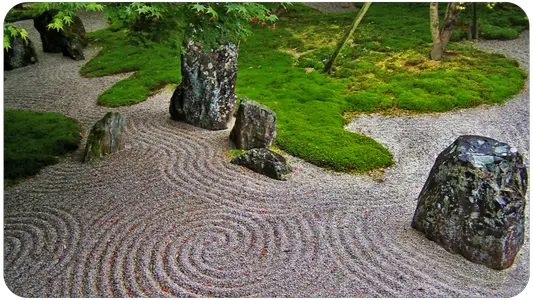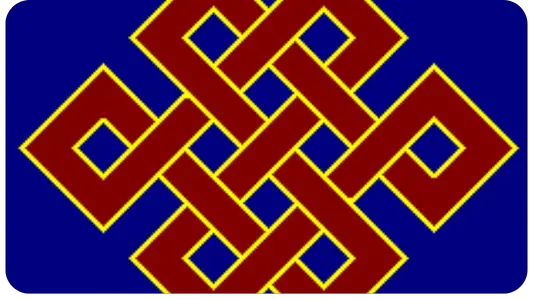Buddha-nature (skt. buddha-dhātu, tathāgata-dhātu; Chinese 佛性, pinyin fóxìng, W.-. G. fo-hsing; hg. 불성, bulseong; jap. 仏性 busshō; viet. phật tính; tib.: bde gshegs snying po) in much of Mahayana Buddhism, especially Chinese Chan and Japanese Zen, as well as Tibetan Vajrayana, is the universal, immanent ability and potency of living beings to become Buddhas.
Historical Variants
The origins of Buddha-nature in Mahayana lie in the expositions of the Lotus Sutra, the Nirvana Sutra, the Tathagatagarbha Sutras, and in Vajrayana also in the teachings of non-dual practice systems such as Lamdre, Dzogchen and Mahamudra.
There, Buddha-nature is also referred to as the nature of mind or clear light of primordial awareness. In the Nirvana Sutra, the Buddha-nature (Buddha-dhatu) is explained by the Buddha himself as "the true self" of Buddha and is described as "constant, firm and eternal" (nitya, dhruva, sasvata). It is also equated with the dharmakaya.
The Nirvana Sutra states, "The essence of the self is the subtle Tathagatagarbha" (Chapter: Tathagatagarbha). The Buddha-nature is described as indestructible and unborn, because it cannot be affected by external influences, nor by mental changes. It is a concept of transcendence.
The teachings on Buddha-nature contrast the ordinary perception of a non-enlightened being as a relative reality with the perception of an enlightened being. This non-dual enlightened perception is called absolute reality. From the perspective of absolute reality, relative and absolute reality are inseparable.
In contrast, the teachings of emptiness shunyata and non-self anatta refer to conditionally created things. Buddha-nature is further portrayed in the Tathagatagarbha sutras as the inherent, incomprehensible, uncreated, blissful, and immortal Buddha-essence (svabhava) of all living beings.
This Tathagatagarbha-another word for Buddha-nature-is, according to the Nirvana Sutra, the true Self, the Self of Buddha, which knows no death. According to the Nirvana Sutra:
"All things (dharma) are not without the Self. The self is real (tattva), the self is solid (dhruva), the self is virtue (guna), the self is eternal (nitya), and the self is peace" (Chapter: Gram).
The Mahayana Angulimaliya Sutra also asserts that the Tathagatagarbha (Buddha-nature) is found in every being without exception:
"All things (dharma) have the Tathagatagarbha as their essence (svabhava) ... Even if all Buddhas themselves searched diligently for it, they would not find a Tathagatagarbha that is not eternal (sasvata), for the eternal Dhatu, the Buddha-nature, the Dhatu endowed with endless principal qualities and the lesser qualities (of a Buddha), is present in all beings. Even if all the Buddhas themselves were to search diligently for it, they would not find a Tathagatagarbha that is not solid (dhruva), for the solid Dhatu, the Buddha-nature, the Dhatu endowed with endless principal qualities and the lesser qualities (of a Buddha), is present in all beings."





